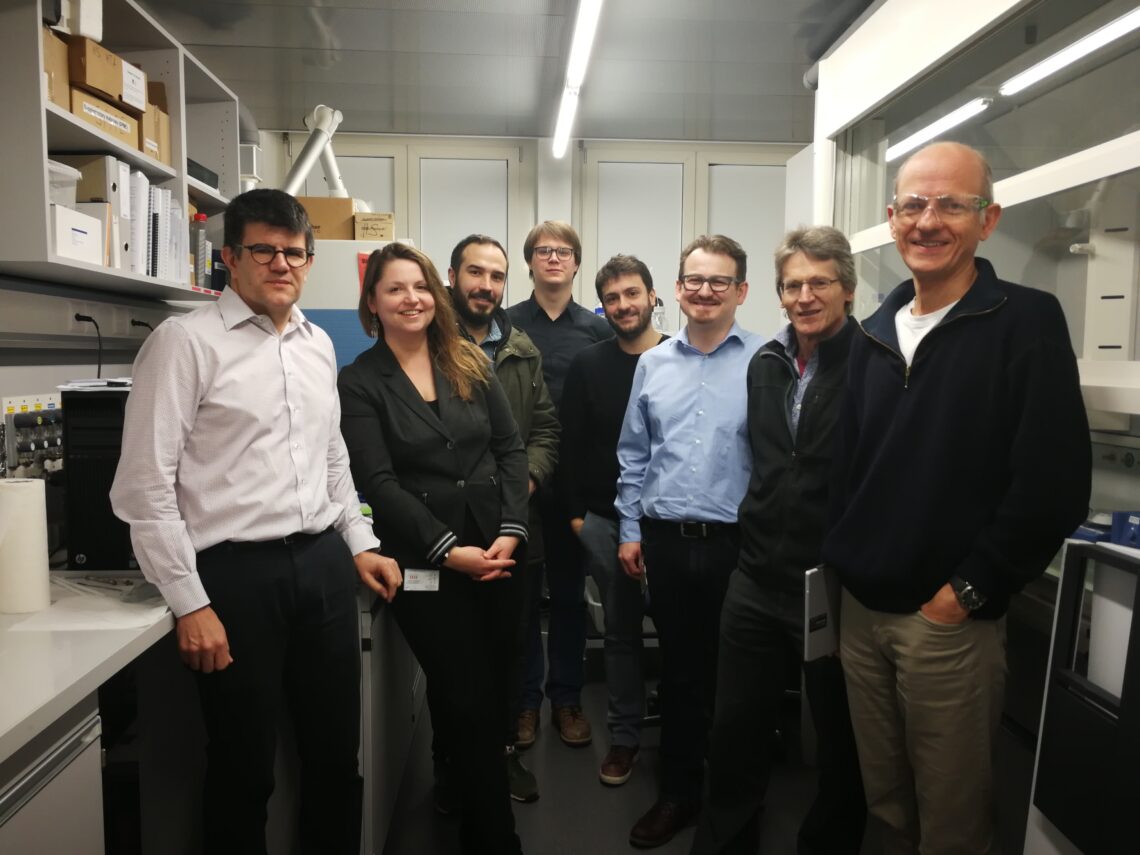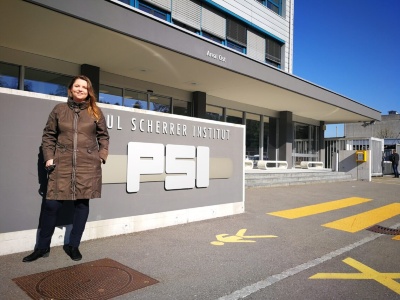Kasia Arturi
What are your research topics and what is your role within the SCCER BIOSWEET?
I am a postdoctoral researcher working in the Catalytic Process Engineering group (CPE, Frederic Vogel). Although I am funded by European Commission under the H2020 programme and Marie Curie Individual Fellowship Action (MSCA-IF), I work within the SCCER BIOSWEET framework and have the same research vision. While the SCCER BIOSWEET focuses on new value chains to produce commodity fuels from lignocellulosic feedstocks, my project aims at increasing the overall sustainability of biomass biorefinery schemes by valorization of the lignin fraction into aromatic building blocks from which new types of green chemicals and biodegradable materials can be produced. My specific research topic deals with mild oxidative solvothermolysis of lignins in biphasic systems (SolvoLig2Chem, project no. 794039).
What made you become a scientist?
Ever since I was a child I had profound curiosity about natural phenomena, a need to understand everything in detail from top to bottom. My dad used to say that I am going to make learning my profession. What made me become a researcher was a need to apply all this learning to solve problems and challenges to make a difference. What directed me into the field of bioenergy was a combination of opportunity with a drive to play my part, however small, in creating a more sustainable world.
Please, tell us something about your biography and carrier path
I was born and grew up in Poland, but spent most of my adult life in Denmark. While on a trip in summer 2003, I was simply charmed by this windy country, open mentality of its people, and the concept of “hygge”. I was also interested by project and cooperation-driven Problem Based Learning (PBL) study model applied on Aalborg University, as well as the opportunities to study renewable energy and sustainability. So at the age of 20 I moved to Scandinavia, where during the next 14 years I learned the language, obtained work experience, MSc, as well as my PhD degree in hydrothermal valorization of waste products. The next logical step was gaining international research experience. This aim has set me on an amazing journey, both personal as well as scientific, leading to Switzerland and PSI, where I currently work under the supervision of Dr. Sasa Bjelic on the development of new pathways for more efficient and selective conversion of lignin, high resolution mass spectrometry methodology, and data mining techniques. After finishing my postdoc, I would like to operate on the emerging academic/industrial interface of sustainable development promoting the realization of biomass-based vision for the future, be it as researcher, data scientist (a particular topic of interest), or science diplomat.
What do you find fascinating about the energy transition?
I think that right now is a very exciting time for bioenergy. We are finally starting to face the consequences of the past and challenges of tomorrow. The crisis at our hands is dire, but it also creates unique opportunities to force paradigm shifts from mindless consumption towards multilateral sustainable development. Every generation, past and future, should have an equal right the natural resources. What I find most fascinating about the energy transition, is its potential for reshaping of the world.
Where do you see renewable energy in the next 10 years and what role will bioenergy play?
There is no question that the role of renewable energy will grow exponentially in the coming years, particularly in tact with the ambitious goals set by national as well as international agreements. My technology has a potential to revolutionize how we produce chemicals, making biomass valorization process economically attractive by production of high-value, sustainable derivatives. Although the saying in the industry is “you can make anything out of lignin, except money”, advantages achieved in recent years, particularly in Switzerland within the SCCER BIOSWEET domain by e.g. Dr. Jeremy Luterbacher from EPFL, have pushed the technology towards reality.

Kasia Arturi and her colleagues at PSI (Team of the Swiss Data Science Center Project).
What is your “work-balance” recipe?
Although finding a good work-life balance is a very common challenge, the right recipe, found typically by the trial-and-error method, is always highly personal. I, for one, try always to work with long-term goals in mind. Although it seem to be a simple advice, it forces you to think beyond the busy schedule of today, where we spent most of our working hours, into a future where people have goals and dreams. Doing this on a daily basis gives me a sense of accomplishment resulting in a good balance. Beyond that: 1) first things first: do your creative work in the morning; 2) be present at whatever you are doing at any given moment, even if what you are doing is a boring meeting; 3) sleep at least 8 hours every day, it is crucial to memory, mental capability, and creativity.
Can you provide recommendations for young scientist wishing to pursue a career in the field of energy research?
There are a lot of things young researchers can do to promote a career in science: 1) be proactive and plan your future (next steps) early on, 2) don’t be afraid to dream big and follow your creative ideas, 3) invest in your personal development and find mentors. There is no question that hard work is important and necessary for young researchers, but dedication through a truly stimulating, creative, and engaging work will ultimately be more productive, although it may look less busy.
Text and pictures: Kasia Arturi, March 2019
!!! This document is stored in the ETH Web archive and is no longer maintained !!!
